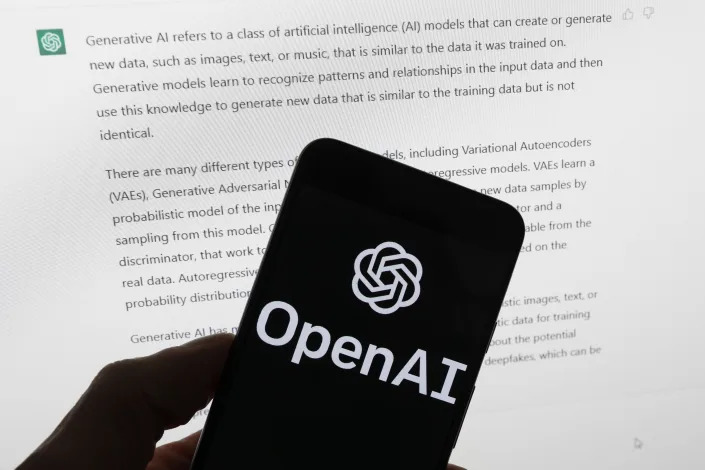Europe pioneers AI legislation
- Tram Ho
The European Union is working to develop regulations to govern this emerging technology. Two years ago, the 27-nation bloc proposed the first regulations on AI, focusing on controlling the risks of AI applications, however, the coverage is still narrow. At the time, advanced AI chatbots were barely mentioned.
Dragos Tudorache, Romanian MP for the European Parliament, who led the effort to establish regulation of AI, said: ” After that, ChatGPT exploded. If there are still some people who doubt whether we need regulation, then ChatGPT exploded. Any idea about AI or not, I think that doubt quickly disappeared .”
The launch of ChatGPT last year caught the world’s attention because of its ability to respond to requests very much like a human, based on the massive data ChatGPT has.
More concerned about this issue, European lawmakers are quick to add content about AI systems as they work to finalize their legislation.

The outbreak of ChatGPT has caused concern among lawmakers around the world. Photo: AP.
The EU AI Act could become the global standard for the development of artificial intelligence. “ Europe was the first bloc to try to drastically regulate AI,” said Sarah Chander, senior policy adviser at digital rights group EDRi. “. The EU’s sweeping regulations on AI, expected to bind all AI products and services providers, are on the agenda for approval by a body of the European Parliament on Thursday. Once agreed upon by the body, the draft will be presented for discussion among the 27 member states, the EU Parliament and the Executive Committee.
Global concerns about AI
Authorities around the world are also trying to figure out how to control AI to ensure that the technology improves people’s lives and doesn’t threaten their rights or safety. Regulators are also concerned about new ethical and social risks posed by ChatGPT and similar AI systems, concerned they could transform everyday lives, from work and education to copyright and privacy issues.
The White House recently invited the heads of technology companies developing AI such as Microsoft, Google and the creator of ChatGPT OpenAI to discuss these risks. The US Federal Trade Commission also warned that it would not hesitate to crack down.
China has also issued a draft regulation that mandates security reviews for any product that uses an AI system similar to ChatGPT. The UK’s competition watchdog recently opened a review of the AI market, while Italy briefly banned ChatGPT due to privacy violations.
The development of AI is also raising concerns of the technology world itself. Tech world leaders like Elon Musk and Apple co-founder Steve Wozniak have called for a six-month pause in AI development to consider the risks.
Geoffrey Hinton, a prominent computer scientist and AI pioneer Yoshua Bengio spoke out last week about the risk of AI growing unchecked.
Mr Tudorache said such warnings showed the EU’s move to start developing AI rules from 2021 was “the right thing to do”.
Care about protecting the rights and privacy of users
Recently added provisions to the EU AI Act will require “platform” AI models such as Chat GPT to publish the copyright materials they used in the creation of the Chat GPT database, according to a recent draft law that was accessed by the AP.
Platform models, also known as big language models, are a minor development direction of AI. Their algorithms are built from a vast pool of online information, such as blog posts, ebooks, scientific articles, or song catalogs.
” It takes considerable effort to archive any copyrighted material that was used in the construction of the algorithm, ” said Mr. Tudorache. From there, artists, writers, and other content creators can find a way to respond.
According to the EU’s risk-based approach, the use of artificial intelligence threatens the safety or right of people to face tight control.
Remote facial recognition is expected to be banned. Indiscriminate scanning of photos from the internet for biometric matching and facial recognition is also a no-no.
Psychological prediction policy and emotion recognition technology, beyond therapeutic or medical use, are also no longer widely used. Violations can result in fines of up to 6% of the company’s annual global revenue.
Even if the EU legislation receives final approval from all relevant agencies, expected by the end of this year or early 2024, the text will not take effect immediately. There will be a waiting period for companies and organizations to adapt and find ways to apply the new rules.
Source : Genk
